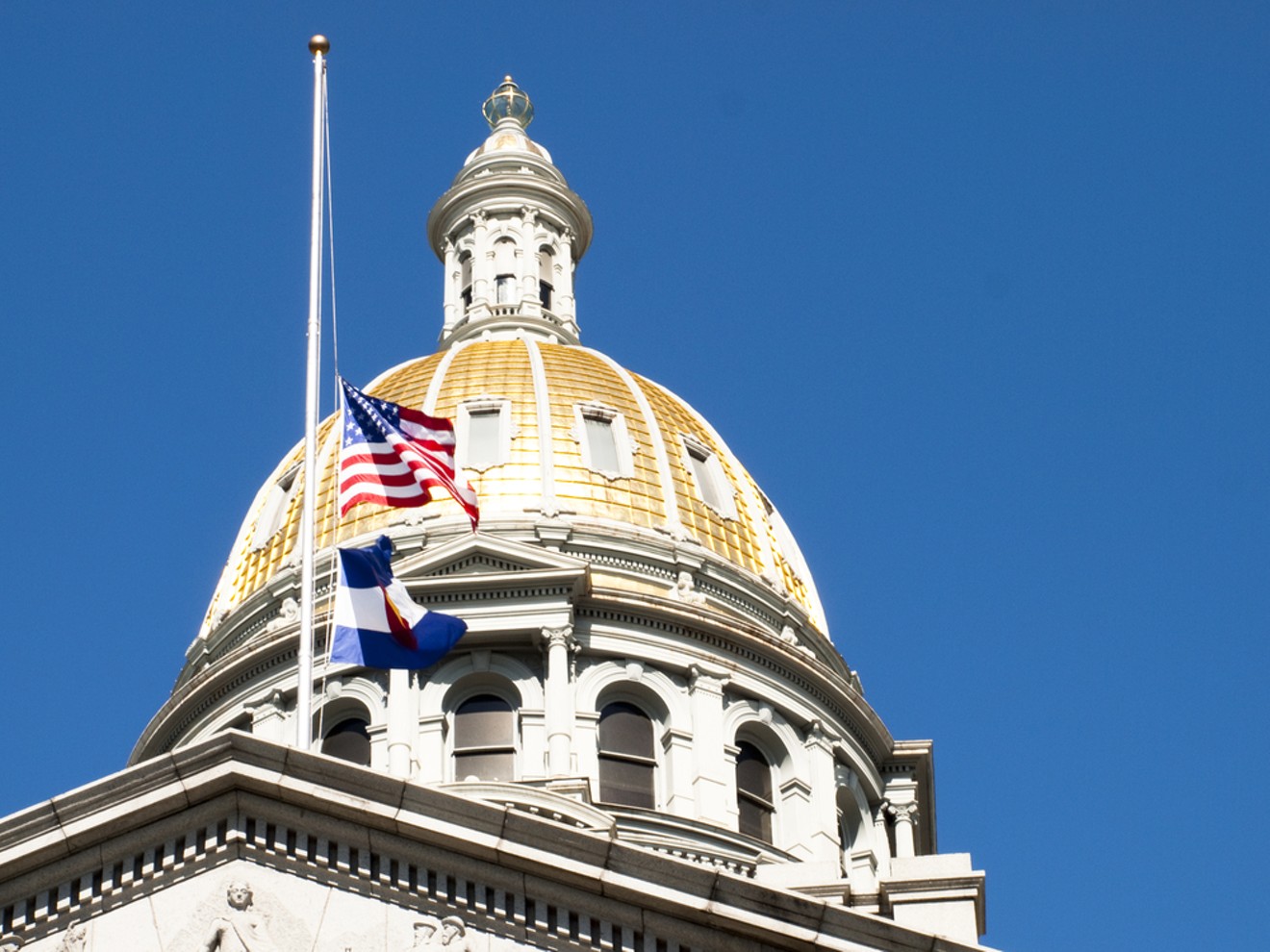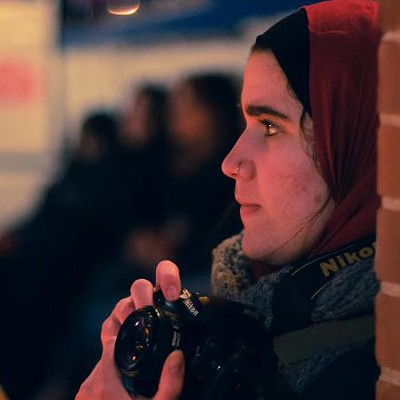And legislators do clock in long hours to get the people's work done; it's not all sexual-harassment scandals and expulsion votes under the dome. More than 650 bills have been introduced at the Capitol this session, not including dozens of resolutions, according to House and Senate status sheets. Of those bills, only 150 have been signed by the governor, a 23 percent success rate — so far.
In January, Westword compiled a list of bills to watch this legislative session, which included a supervised-injection facility bill that would have piloted the first such site in the country right here in Denver. But that bill died soon after it was introduced in a Senate committee in February. Other proposals dealing with important issues are still alive; here are some of the most notable:
1. Cannabis
- HB 1011 would allow publicly traded companies to be licensed marijuana companies, remove the cap on out-of-state owners, and limit background checks and disclosures of shareholders to only those who own more than 5 percent of shares.
- HB 1258 would create cannabis tasting rooms at existing dispensaries
- HB 1263 would add autism to the list of qualifying conditions for medical marijuana use. The bill passed the House and will be heard in a Senate committee on Thursday, April 19.
- SB 235 would create the Colorado Industrial Hemp Research and Development Authority, a seven-member board of directors that will solicit and expend funds for the purpose of industrial hemp education, research and development.
- SB 241 would allow adoption providers or foster care agencies to discriminate against same-sex candidates based on sincerely held religious beliefs.
- HB 1256 would reauthorize the existence of the Colorado Civil Rights Division and its commission, which are undergoing a sunset review process. Republicans are calling for reforms to the agency as part of the reauthorization process.
- SB 238 would expand prison labor to give sheriffs the authority to have prisoners work outside of jail and on any public property at any time. The bill would also allow for those confined in a county jail who have not been convicted or sentenced to work while in confinement.
- HB 1070 would add capital construction assistance funding for public schools by up to $54 million by fiscal year 2020.
- HB 1391 would require colleges and universities to adopt and periodically update their sexual-harassment policies while establishing minimum requirements for reporting their policies and trainings to the state, procedures for handling cases and protections for those involved.
- SB 158 would set aside $5 million a year for emergency-response grants for public school districts. These grants would fund equipment and training on a two-way radio between schools and first responders for immediate emergency communication, which could be used in the case of an active campus shooter.
- SJM 005 would ask Congress to call a constitutional convention to amend the Constitution to overturn the U.S. Supreme Court ruling on Citizens United v. Federal Elections Commission.
- SCR 4 would transfer the power of congressional redistricting to a newly created, 12-member independent congressional redistricting commission. If approved by the legislature, the measure would also require a 55 percent vote in favor during the November elections in order to amend the state constitution.
- HB 1231 would repeal Columbus Day as a legal holiday in Colorado and replace it with Election Day.
- HB 1157 would increase reporting of oil and gas explosions, flaring leaks, spills, venting and other reportable incidents.
- SB 1352 would increase drilling setbacks near schools to 1,000 feet from the school property line. Current regulations require a 1,000-foot setback from the school building.
- SB 43 would prevent the governor from appointing an individual to a state office if the appointment is rejected by the Senate, including in a temporary or holdover capacity. The bill would also prevent a person from being nominated to the same position a second time unless someone else has served in the position since the nomination or until a new Senate convenes. The demand for such a clarification arose last year after a Colorado Civil Rights Commission commissioner reappointed by Governor John Hickenlooper was rejected by the Senate. In retaliation, Hickenlooper refused to nominate anyone else to fill the vacancy, instead allowing the commissioner to continue to serve, presumably indefinitely, in this legal gray area.
- SB 220 would prevent municipalities from implementing so-called sanctuary city policies. The bill says that cities and counties can't prohibit law enforcement from sharing citizenship and immigration status information with federal authorities and can't encourage the physical harboring of undocumented immigrants.
- HB 1273 would do the opposite of SB 220; it would prevent municipalities from sharing, among other things, immigration status of Colorado residents. The bill would also prevent municipalities from aiding the federal government in detaining or creating an updated registry of Coloradans, including undocumented immigrants.
- HB 1368 would allow local governments to increase the minimum wage within their jurisdictions.
- HJR 1016 would designate Interstate 25 through Denver as the Barack Obama Highway.
- SB 204 would prohibit the Regional Transportation District from implementing any new fare discount programs without legislative approval. This comes on the heels of a one-year discount fare study by RTD's Pass Program Working Group, which convened its last meeting on February 27.
- HB 1021 would have created a task force to study youth homelessness and make recommendations.
- HB 1037 would have allowed concealed handgun license holders to conceal-carry on any elementary, middle or high school campus in the state.
- HB 1054 would have established a statewide plastic-shopping-bag tax to support affordable-housing developments.
- HB 1059 would have made it a crime to not call 911 if another person is in need of assistance.
- HB 1067 would have established a "Right to Rest" law for Colorado's homeless, which would have codified their right to use and move freely in public spaces, eat and accept food, rest in public spaces, occupy a legally parked vehicle, and have some expectation of privacy of their property.
- HB 1071 would have reaffirmed the Colorado Court of Appeals decision on the Martinez v. Colorado Oil and Gas Conservation Commission, which concluded that the state must make the protection of public health, safety and the environment a precondition to permitting drilling activity.
- HB 1092 would have created a medical marijuana delivery pilot program and vendor licensing in up to three municipalities.
- HB 1206, also known as the "Live and Let Live Act," would have legalized discrimination against LGBTQ Coloradans by creating religious exemptions for those with sincerely held religious beliefs. The bill would have allowed individuals and religious institutions to deny services, housing, employment, foster care and adoption services, and marriage licenses.
- SB 4 would have increased spending for full-day kindergarten by authorizing the state to retain all excess tax revenues. Any funds thereafter would have gone to the state education fund. It was postponed indefinitely in a Senate committee, but a similar statewide ballot initiative is circulating. Initiative 93 would raise the state income tax for those earning more than $150,000 to fund full-day kindergarten, pay down the annual state education budget deficit and put more money into school coffers.
- SB 8 would have increased the county clerk document surcharge, which the state will use to fund home financing, home purchasing or redevelopment loans for low-income households.
- SB 29 would have required the cannabis research institute at Colorado State University-Pueblo to research and develop a marijuana tracking agent that could be applied to cannabis plants and products and scanned.
- SB 40 would have allowed hospitals to be used as needle exchange sites, created a pilot supervised injection facility in Denver and provided opiate antagonists like Naloxone to schools.
- SB 48 would have given municipalities some regulatory oversight of the oil and gas industry by allowing local governments to exercise land-use authority.
- SB 51 would have made the possession of a bump fire stock a felony.
- SB 75 would have set campaign contribution limits for school district director candidates. Donations would be limited to $500 for an individual and $5,000 for small donor committees.













